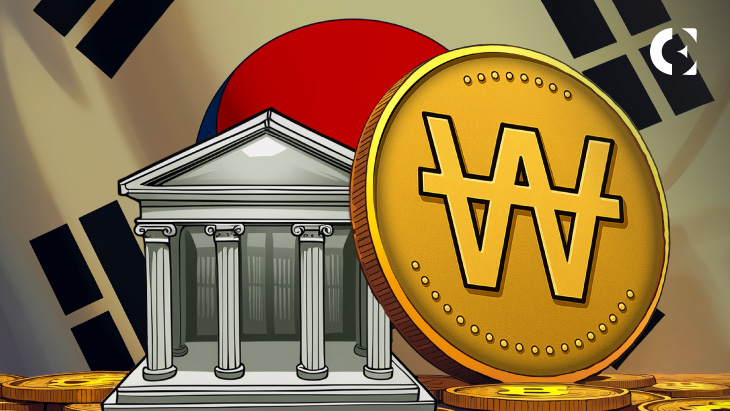- The Governor of the Bank of Korea, Rhee Chang-yong, emphasized that any move toward a central bank digital currency or stablecoin must be grounded in financial stability and not in short-term stimulus
- It was reported that the central bank is especially interested in use cases where private stablecoins may pose systemic risks
- Last week, during President Lee Jae‑myung’s early tenure, the ruling Democratic Party proposed the Digital Asset Basic Act, which would enable local companies to issue won-backed stablecoins
The Bank of Korea (BOK) is evaluating the potential launch of a Won-backed stablecoin with a cautious but forward-looking approach to digital currencies.
BOK’s Governor Rhee Chang-yong emphasized that any move toward a central bank digital currency (CBDC) or stablecoin must be grounded in financial stability and not in short-term stimulus. He also warned against blanket cash assistance as an economic strategy, suggesting it could distort market signals and increase fiscal risks.
The Central Banker’s Sobering Warning
Rhee said that the government should prioritize targeted assistance for the self-employed and small businesses.
He also stated that he’s not against the stablecoin, saying: “I am not against the issuance of won-based stablecoins. We need to be mindful of a bigger picture on how non-banks and banks will reorient their business models.”
In addition, it was reported that the central bank is especially interested in use cases where private stablecoins may pose systemic risks. The institution noted that the rising housing prices in the Seoul metropolitan area have contributed to a higher perceived inflation rate, even with generally favorable income conditions.
South Korea as a crypto hub
The country is a major hub for crypto trading, yet it maintains strict oversight to avoid risks such as capital outflows, financial fraud, and market volatility. A state-backed stablecoin would help the government exert more control over digital transactions while competing with private alternatives like USDT and USDC.
Last week, during President Lee Jae‑myung’s early tenure, the ruling Democratic Party proposed the Digital Asset Basic Act, which would enable local companies to issue won-backed stablecoins. The goal of this proposed law is to reduce the reliance on US dollar-pegged stablecoins, considering they currently account for 57 trillion won ($42 billion) in domestic trading.
The BOK specifically is participating in cross-border CBDC pilots with regional partners, including the Bank for International Settlements (BIS).
Adding to all of this, South Korea’s Ministry of Science recently increased support for blockchain-based projects, showing that there indeed is an institutional interest in digital innovation.
Naturally, there are some concerns as well. Some regulators have expressed concern over unregulated stablecoins potentially undermining sovereign monetary policy.
Disclaimer: The information presented in this article is for informational and educational purposes only. The article does not constitute financial advice or advice of any kind. Coin Edition is not responsible for any losses incurred as a result of the utilization of content, products, or services mentioned. Readers are advised to exercise caution before taking any action related to the company.







